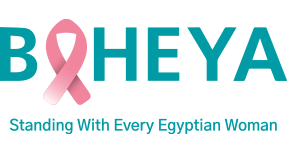How do you tell your kid you have cancer?
How do you tell your kid you have cancer?
How do you tell your kid you have cancer?
Telling your child that you have cancer may be one of the hardest conversations you have as a parent. We instinctively try to protect our children from things that could hurt their feelings. When diagnosing cancer, parents may try to protect their children by not telling them, but it may do more harm than good. What's the best way to tell your child that you have cancer?
How do you tell your kid?
Wait until you have all the details about your illness before you tell your child that you have cancer, the experts recommend waiting until you have as much information as possible about the type of cancer, treatment and diagnosis as possible. That way you can deal with the questions your child might have about diagnosing cancer. Children understand better when they see the whole picture, not just little pieces. If you have a lot of knowledge about cancer and your medication, you'll show more confidence in your child. When you're sure, it makes them feel safer, which is essential for children in crisis.
Don't presume your child knows what cancer is. Children hear the term cancer in the media and TV, but they may not know exactly what cancer is and how it affects the body. Older children may think they know, but they may have an inaccurate idea of cancer. Explain the physical process of how cancer develops in a simple, age-appropriate way.
Let them know that cancer is not an infectious disease. It's also important that they know that your illness and that it can't be transmitted to them like a cold. This may be the only kind of disease they know, and you will need to explain that not all diseases spread from person to person.
Make conversation terminology appropriate for your child's age. Medical terminology confuses adults, let alone children. Discussing a serious situation would also have an emotional dimension. You may want to seek advice from a psychologist, a pediatrician or a clergyman to be willing to discuss it according to what your child understands.
Don't bother if the conversation is one-sided. Your child may be calm and ask no questions during the initial conversation. That's perfectly normal, and it's how you process the information you just gave him. Don't make him reveal his feelings, but tell him he can talk to you and ask questions whenever he needs them. Sometimes it is easier for children to discuss their emotions with someone other than their parents. School psychologists, clergy, friends and trusted family members are people children can talk to about your situation.
Common questions for children
Children may ask questions that may be difficult to answer if you are not prepared. There may be questions you don't have to answer, but don't be afraid to say "I don't know." Some of the common questions your child may ask include:
Are you going to die?
Will I get cancer too when I grow up?
Will your hair fall out?
Do I have to tell my friends?
Who CARES about me if you can't?
Why did you get cancer?
If something happens to you, what happens to me?
When will the cancer go away?
Get help if your kid can't take it well.
If your child turns out not to be well treated, feel free to contact your pediatrician. He can recommend a psychiatrist or a family therapist with experience in helping children deal with cancer. Common signs of confrontation included cooling-off and withdrawal, and surprisingly, they might be overactive. They may also have a problem concentrating at school or misbehave in class. These are all signs that they are having a problem adapting and need help. Bear in mind that it is normal for children to express their emotions smoothly, but they still need professional guidance to help them adapt.
Be careful if your child is treated well. Children who seem to take everything in a move can hide their emotions. Again, this is also common, and children who offer this kind of behavior also need help.
Choosing not to tell the child you're sick.
Some mothers choose not to tell their children about their diagnosis of cancer. This is a personal decision and must not be made without deep reflection or introspection.
Children are smart, primitive, and usually notice if something is not right within the family. By not telling them, it can lead to unnecessary anxiety and fear. Children grow up to be emotionally stable, and if they suspect that something is being hidden from them, they feel insecure.
Many mothers who choose not to tell their children do so because they do well. Why would I carry a baby when there is no need? However, you should consider the following considerations:
What if your health gets worse? How do you explain that you are suddenly very ill for your child? This may leave little time for them to adjust and adapt to the rapidly occurring changes in What if they find out you have cancer? This is a common problem when people withhold information about diagnosing their children with cancer. Children may be detected through eavesdropping or, perhaps, have been told by another adult about cancer or even "snooping ". Feelings of rejection and mistrust may be the result and may be difficult for a child.
Some mothers don't tell their children because it's a difficult and painful task. Please don't let this keep you from making the right decision. If you cannot inform your children, get the help of a trusted friend, a family member or a clergyman. Together, you can sit together and discuss your illness and the changes that a child can expect.












